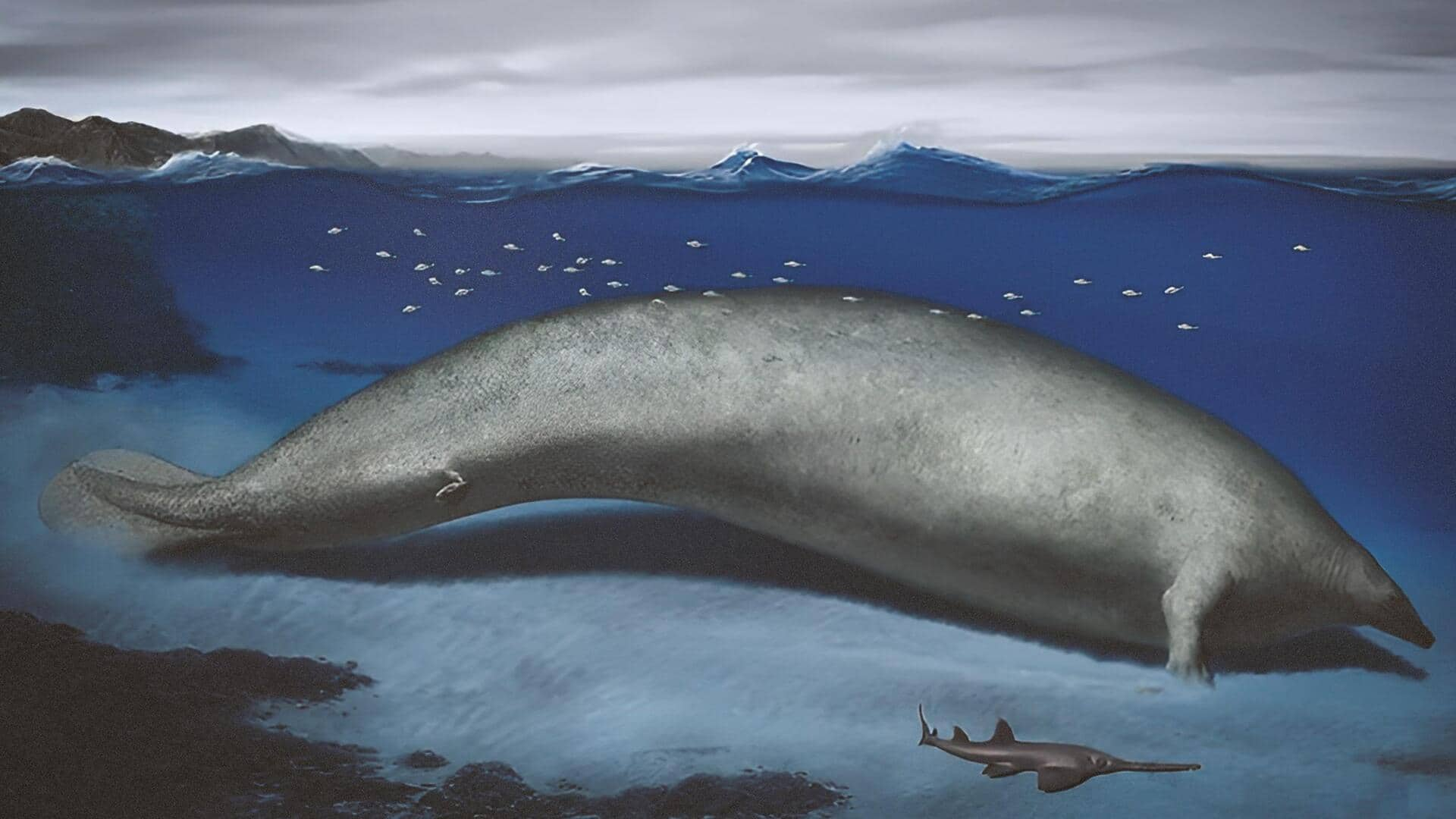
Ancient whale found in Peru may be Earth's heaviest animal
What's the story
Move over, blue whale! There's a heavyweight newcomer in town. Peruvian scientists have unearthed a potential challenger for the title of the heaviest animal in Earth's history. On Wednesday, researchers revealed that they found fossils of a creature in Peru called Perucetus colossus, also known as "colossal Peruvian whale," which could be bigger and much heavier than the blue whale.
Comparison
Blue whale vs Perucetus colossus
The blue whale, currently endangered, weighs around 100 to 150 tonnes, although some can reach up to 200 tonnes. In contrast, the recently discovered Perucetus colossus, based on studied remains, had a weight range of 85 to 340 tonnes. This indicates that some Perucetus colossus individuals might have been even more massive than today's largest blue whales.
3D scanners
Researchers used 3D scanners to study the skeleton
Following excavations, researchers used 3D scanners to study the bone surfaces and drilled into them to learn more about their insides. They estimated the size and weight of the whale using the mostly intact but incomplete skeleton, which included 13 vertebrae, four ribs, and a fragment of the pelvis. For comparison, they referred to the dimensions of modern marine mammals.
Discovery
The skeleton was discovered 10 years ago
Mario Urbina from the University of San Marcos' Natural History Museum in Lima unearthed the partial skeleton of Perucetus over ten years ago. An international team dedicated years to excavating the remains from a steep, rocky slope in the Ica desert, a region in Peru that was once submerged underwater and is renowned for its abundant marine fossils.
Heaviest
Not the longest, but the heaviest
The body of the newly discovered whale stretched to approximately 66 feet (20 meters) in length. However, blue whales can be longer, reaching over 100 feet (30 meters). This means that Perucetus colossus was "possibly the heaviest animal ever," as noted by author Alberto Collareta, a paleontologist from Italy's University of Pisa. But "it was most likely not the longest animal ever."
Deep sea creature
Perucetus likely dwelled in shallow, coastal waters
The bones of Perucetus were notably voluminous, displaying exceptional density and compactness. According to the authors, these super-dense bones indicate that the whale likely preferred shallow, coastal waters as its habitat. This characteristic is shared with other coastal dwellers, such as manatees and dugongs, also known as sirenians, who possess heavy bones to help them stay close to the seafloor